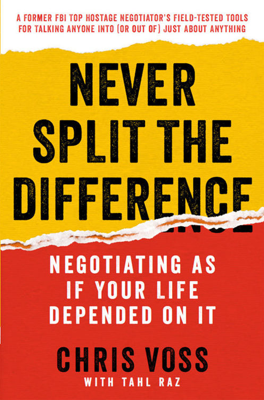Summary
Introduction
Chris Voss, an ex-FBI hostage negotiator, transforms his field-tested strategies for high-stakes negotiations into tools that can be used in everyday business and personal interactions. His main thesis is that negotiation is an essential skill for navigating daily life and achieving favorable outcomes in various scenarios.
Key Techniques and Concepts
- Tactical Empathy: Understanding the emotions and viewpoints of others to steer negotiations effectively.
- Active Listening: Making counterparts feel heard and understood which aids in de-escalation and negotiation.
- Calibrated Questions: Open-ended questions that allow the negotiator to control the dialogue and gather useful information while remaining non-confrontational.
- Mirroring and Labeling: Techniques used to build rapport and gain insight into the underlying emotions and motivations of the counterpart.
Strategic Applications
- The Impact of "No": Encouraging the counterpart to say "no" can provide a more honest and open discussion, shifting the dynamic to one that can foster agreement on deeper levels.
- Bending Reality: Negotiators can shape the perceived reality by addressing the unspoken fears and desires of the counterpart to reach a satisfactory compromise.
- Voice Modulation: Using varied tones—such as the calming "late-night FM DJ voice" or the positive/playful voice—to influence the negotiation's atmosphere and emotional tone.
Practical Execution
- The Illusion of Control: Negotiators can create a sense of control for the counterpart while actually steering the negotiation towards the desired outcome by asking calibrated questions and setting up the negotiation environment strategically.
- Ensuring Agreement Execution: Going beyond reaching an agreement to ensuring its execution through strategic questioning and verification techniques, understanding the real influence and decision makers in the process.
Innovative Concepts
- The "Black Swans": Uncovering hidden, transformative information that can change the outcome of negotiations, emphasizing the need for flexibility and adaptability in strategies.
- Avoiding Compromise: Instead of settling for a compromise, Voss suggests that effective negotiation should strive for satisfying the deeper interests of both parties, often requiring creative problem-solving and a refusal to split the difference.
Conclusion
Chris Voss’s negotiation strategies revolve around understanding human psychology, achieving tactical empathy, and using strategic questioning to guide negotiations to successful outcomes without resorting to compromise. His techniques are applicable not just in hostage situations but across all realms of personal and professional life, emphasizing negotiation as a fundamental life skill.
